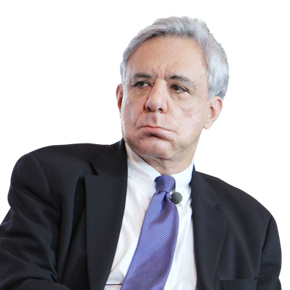The 2014 was a bad year by any measure. ISIS alone claimed the lives of more than 5000 people and caused misery to millions. As much death and misery was caused by the conflict in Ukraine. Thousands were killed and made homeless during the indiscriminate bombings in Gaza. This year, according to the United Nations, the number of deaths and refugees from the ongoing Syrian tragedy passed the two hundred thousand and two million marks respectively. Still, there were the casualties from Ebola and extreme manifestations of weather patterns.
What’s wrong with the world we live in?
There are four observable phenomena that can help us explain the world events of the passing year. All four were themes of best selling books in 2014: Henry Kissinger’s World Order, Francis Fukuyama’s Political Order and Political Decay, Thomas Piketty’s Capital in the Twenty-First Century, and Naomi Klein’s This Changes Everything: Capitalism vs. the Climate.
Although Kissinger’s book is entitled World Order, the real purpose of it was more to argue in favor of a lack of one. His overview of the history of periods of relative peace and stability, predicated by pacts, alliances and balance of power, seems to have the goal of contrasting them with today’s discord and misbalance.
Today’s world order, Kissinger believes, is challenged by the fundamental alterations of the values underlying international arrangements, and the inability to accommodate a major change in power relations after the dissolution of the Soviet Union. Kissinger identifies three important dimensions as problematic in today’s world order: the absence of an effective mechanism for the great powers to consult and cooperate; the variance between the economic and political organizations of the world-the former becoming global as the latter remains based on the nation-state, and finally the phenomena of “failed states.”
The latter is a major theme of Fukuyama’s book. The author measures a country’s evolution, standing and successes against three criteria: state, rule of law and accountability. That is his paradigm for a successful liberal democracy. Some countries have them all, others partly, and many none. But he also emphasizes that the institutions of those as high as the US on his liberal democracy scale are in decay of late. The institutions of others, the likes of Turkey and Brazil, are slow to adapt to the needs of their fast changing societies, and great many in the Middle east, Latin America, Africa and the former Soviet States, remain trapped in their self-perpetuating thrones of failed states.
Piketty’s book is about wealth and income, rich and poor, and by extension about global inequality, poverty and social misery. Piketty’s theory is that wealth grows faster than economic output. Consequently, in periods of slow economic growth, those who accumulated or inherited wealth, will grow richer and the working poor poorer, causing soaring inequality and contributing to economic or political instability.
Finally, Klein’s book is about climate change and the culprit behind this imminent threat to our planet. She reproaches capitalism’s role in climate change. Her one paragraph best sums up the book: “We have not done the things that are necessary to lower emissions because these things fundamentally conflict with deregulated capitalism... We are stuck because the actions that would give us the best chance of averting catastrophe – and would benefit the vast majority – are extremely threatening to an elite minority that has a stranglehold over our economy, our political process, and most of our major media outlets.”
Now let’s look at any given new or continuing development, conflict or crisis in the year 2014: Coup and war in Ukraine; emergence of ISIS and continuing mayhem in Syria and Iraq; Gaza war; racial tension in the US and elsewhere; Ebola endemic in Africa; extreme weather patterns in different parts of the globe.
While each of these is ignited or triggered by the spur of a particular event or incident, they all have their root causes anchored in one or several of those phenomena.
Conflict in Ukraine is the result of the colliding visions of the major global players over post cold war world order, the failure of the 2004 Orange Revolution to clean up corruption and improve the trustworthiness of state institutions, and the social economic misery that the country was befallen in since its independence. The same can be said, with even bigger proportions, for Libya, Syria, Iraq and Yemen. Racial tensions in the United States can be attributed to Americas decaying institutions and the growing social injustice and the gap between rich and poor. Finally, the frequency and the ferocity of the Philippines hurricanes and its deadly impact, first and foremost on the poor and the vulnerable testifies both to the climate change and growing inequality in the world.
On a more positive note, I must say that this year was marked – notwithstanding Virgin Galactic’s crash-by two major successes in outer space. Europeans landed Rosetta spacecraft's Philae lander on a comet, and NASA successfully launched its Orion crew vehicle and returned it to Earth in preparation for its future mission to land humans on Mars.
As many question the wisdom and efficacy of spending billions on exploring distant planets, I say it’s about time to have one on reserve.
Vartan Oskanian is the Founder of Civilitas Foundation; he was the Armenian Foreign Minister in 1998-2008.
These views are his own.

















